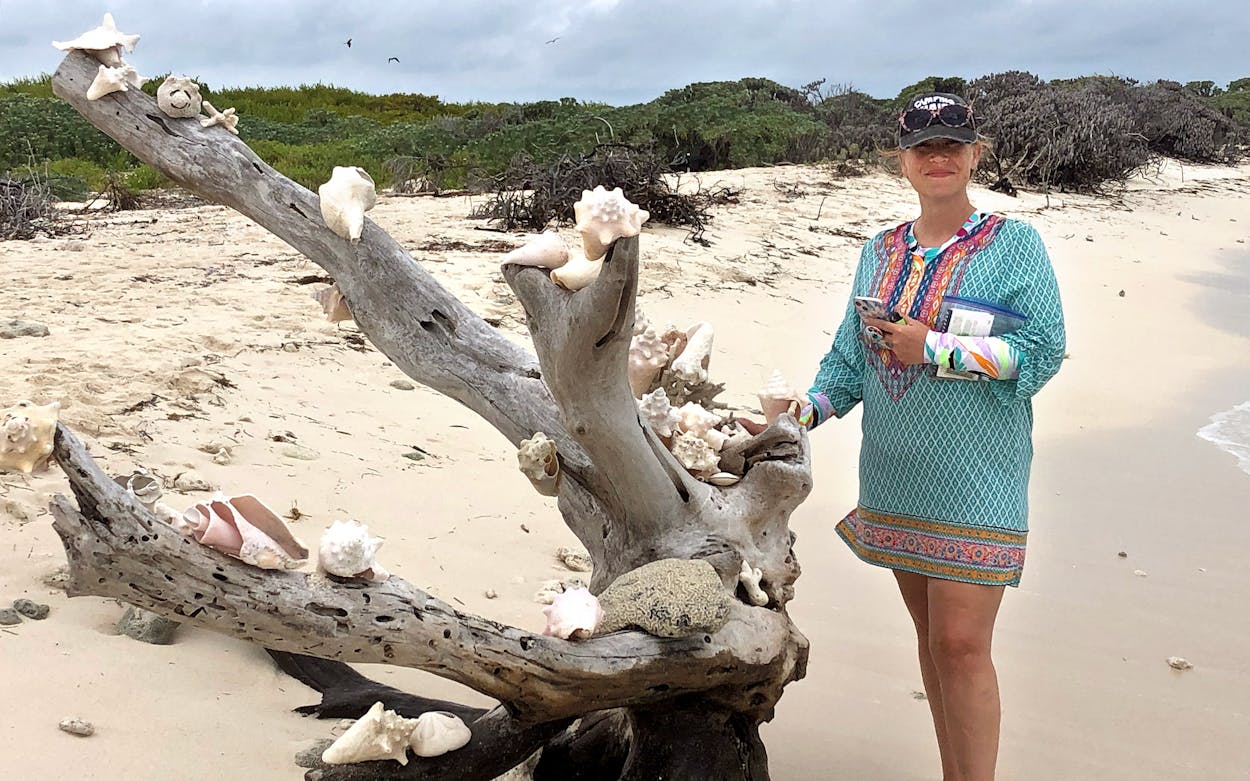Let’s just get this out of the way now: shark attacks are exceedingly rare. You’re far more likely to be struck by lightning (the odds of that are 1 in 500,000, versus 1 in 3.7 million for being bitten by a shark). Around the world, mosquitos, dogs, snakes, bees, and hippos all send more people to the hospital each year than sharks do. If you don’t count provoked incidents—those in which someone is dumb enough to deliberately swim up to a shark and tempt fate—the average annual number of deaths from sharks worldwide is a mere five. Long-term trends are also reassuring: though there was a spike in deaths last year (nine, including one in the U.S., in California), the folks at Florida’s International Shark Attack File, who have tracked this data for six decades, have found that the number of fatal attacks is falling over time. But, of course, shark encounters are also exceedingly terrifying, and thus receive an inordinate amount of attention in the news and onscreen, from Jaws to Sharknado to, well, the very story you are reading now.
Heather West knew all this when she went snorkeling last month in the Gulf of Mexico off Florida’s Dry Tortugas National Park, a group of coral islands seventy miles from Key West. The 42-year-old, who grew up near Houston in the town of Conroe, where she still lives, describes herself as “obsessed” with sharks. “I’m a huge wildlife lover, and sharks especially,” she says. “Any online avatar that gives you the option of a photo—mine would always be a shark.” For years, swimming with sharks has been on her bucket list. That goal finally seemed within reach starting last November, when West packed up her belongings and her cat, Phoebe, and left Texas to travel the country in Big Bertha, the SUV that she converted into a camper van.
After hiking in Tennessee’s Great Smoky Mountains, West headed to the Sunshine State. There, she hoped to sign up for an outing with Florida Shark Diving, an outfitter that allows intrepid divers to observe sharks from the safety of a cage. First, though, she headed to Little Africa Reef, a remote area north of Loggerhead Key, in the Dry Tortugas, to snorkel. West had recently met three new friends, men whose catamaran allowed them to access otherwise hard-to-get-to areas with pristine coral and hundreds of species of tropical fish. She was eager to make the trip. “It was a once-in-a-lifetime experience,” she says. “I would do it all over again, as crazy as that sounds.”
On January 22, the water was choppy and visibility was poor, making for subpar snorkeling. The group swam for only a few minutes. As her friends toweled off on the beach, West lingered in the water a little longer, watching a school of fish. Then something told her to turn around. “I was just overwhelmed with this ominous feeling,” she says, “like, ‘Whoa, I don’t know why, but I gotta get out now.’” As she swam toward shore, West felt a tug on her right foot. Her first thought was that one of the men was playing a trick on her. Then another tug, harder, pulled her underwater. She couldn’t see anything in the murky water, but she knew it was a shark. West also knew what you’re supposed to do in a shark attack: fight back.
She pummeled the shark’s nose and jaws with her fists as hard she could, while kicking with her left foot. “I was thinking, ‘No sir! No, you may not have my foot.’” The animal (a six-foot-long lemon shark, she’d later learn) thrashed its tail wildly, churning the water. Her snorkel mask slipped off her face in the struggle and floated away. She didn’t feel any pain yet—just pressure, the “vice grip” of the shark’s jaw on her foot. Then, as suddenly as it had arrived, the creature let go. Time moves strangely during traumatic experiences, but West thinks the entire encounter lasted only a minute or so.
She shouted to her friends, who were watching with horror from the beach, to help her out of the water. Because the visibility was so poor, they couldn’t tell if the shark was still in the area. Safely on land, she looked at her foot and saw that it was still there—badly mangled and bloody, yes, but still attached to her ankle. A surprising emotion hit her: elation. West recalls shouting, “I won! Oh my god, I won! I can’t believe I won a fight with a shark.” Even after the pain set in—which it soon did with a vengeance, as her friends tied tourniquets to staunch the bleeding during the two-hour boat and plane trip to a hospital in Key West—she continued to feel thrilled and relieved. If she hadn’t been wearing flippers, West believes, she would’ve lost the foot. If she hadn’t fought back immediately, and if the shark hadn’t relented, she could’ve died. Considering this, she felt that her luck had been extremely good. (There are no known human fatalities from lemon sharks; most deaths are from great whites, the species that took the life of scuba diving instructor Simon Nellist last week in Sydney, Australia.)
Fighting for her life was nothing new. West lives with a rare, severe, chronic disease called common variable immunodeficiency. She’s been in and out of hospitals for years and had to quit her job as a property manager to go on disability. The worst month was March 2016, when she ended up in the ICU with pneumonia and congestive heart failure, a ventilator breathing for her. West survived that ordeal only to end up on a treatment plan with debilitating side effects. “It was honestly just hell on wheels,” she says. After each infusion of her immune medication, her vital signs would crash, and she’d be admitted to the hospital again. “It got to a point where enough was enough.”
West decided to take a break from treatment and pursue a lifelong dream: traveling and exploring nature, taking photos of wildlife along the way. Until the shark bite, she was feeling the best she had in years. She credits her experience as a chronic illness survivor with helping her escape. “I’ve fought too hard for my life for a shark to come and take it all away, you know? I went straight into fight mode, because it’s second nature at this point.”
Indeed, West did exactly the right thing—not only by fighting back, but by targeting the most vulnerable part of the shark’s body. “A smack to the nose is startling to a shark,” George Burgess, former director of the International Shark Attack File, told CNN, adding, cheerfully, “If you play dead, you’re going to be dead.” Navy SEALS train for shark attacks by attending a lecture session followed by a five-mile night swim off the coast of San Clemente, California—an experience that retired admiral and former University of Texas System chancellor William McRaven described in his viral 2014 UT-Austin commencement speech. “If a shark begins to circle your position, stand your ground. Do not swim away. Do not act afraid. And if the shark, hungry for a midnight snack, darts toward you, then summon up all your strength and punch him in the snout, and he will turn and swim away,” McRaven said.
West now says the most stressful part of her ordeal wasn’t actually the shark-punching itself, but the aftermath, as she navigated the health care system. She documented it all on TikTok and Instagram, with one video about her injury racking up 5.6 million views. West says she waited more than three hours to be seen at a Key West hospital and was released just as a shot of Dilaudid kicked in, making her groggy and confused. She didn’t have her van, her wallet, or even any clothes—just the swimsuit she’d arrived in. A nurse gave her an ill-fitting cocktail dress and a sweater from the hospital’s lost and found before taking her to a bench outside. Alone, in shock, and in a haze from the medication, West began to sob. She called her friends, who helped book her a room in a hostel; a kindhearted Uber driver gave her $60 to pay for it, she says.
West is doing much better these days. After she documented her harrowing medical experience on social media, someone from Miami wrote in to suggest a plastic surgeon named Christopher Salgado. He and his staff treated her immediately and with compassion, West says; a nurse even offered to take care of her cat.
She won’t know for a while if she’ll regain full use of her foot—the tendon and ligament damage is severe—but she’s hopeful. Because she can’t drive her van while she’s healing, a friend flew down to help her get home to Conroe. But before heading back to Texas, West wants to cross off a few more Florida adventures from her bucket list. She’d planned to snorkel with manatees in Crystal River; swimming is off-limits while her foot heals, so she’s going to kayak instead. And she still wants to swim with sharks someday—safely, from a distance. She feels empathy for the shark that attacked her; park rangers later told her they’d seen a lemon shark in the area a few days earlier, hunting a pelican along the beach. A shark would do that only if it was starving, they explained.
“When we went snorkeling that day, I was really hoping to see a shark,” she says. “And the funny thing is I never did get to see it!” She did punch it in the face, though, and that’ll have to do for now.
- More About:
- Critters








